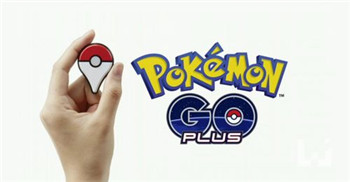(单词翻译:单击)

Pokémon Go Brings Augmented Reality to a Mass Audience
别宅了,“精灵宝可梦Go”手游喊你出来玩
SAN FRANCISCO — There are video games that go viral overnight, causing people to coop themselves up in their homes for days to play.
旧金山——有些电子游戏一夜爆红,导致人们成天宅在家里打游戏。
But the opposite has happened with “Pokémon Go,” a free smartphone game that has soared to the top of the download charts: It has sent people into streets and parks, onto beaches and even out to sea in a kayak in the week since it was released. The game — in which players try to capture exotic monsters from Pokémon, the Japanese cartoon franchise — uses a combination of ordinary technologies built into smartphones, including location tracking and cameras, to encourage people to visit public landmarks, seeking virtual loot and collectible characters that they try to nab.
但《精灵宝可梦Go》(Pokémon Go)恰恰相反。这是一款免费的智能手机游戏,已跃升至下载排行榜的榜首:在发布后的这一周里,它促使人们走向街头和公园、踏上海滩甚至乘坐独木舟出海。在这款游戏中,玩家要努力捕获源自日本漫画系列《精灵宝可梦》(Pokémon)的怪物。它结合了智能手机的常见技术,如定位和摄像头,鼓励人们去公共场所,寻找虚拟货币和他们想要捕捉和收集的精灵。
Boon Sheridan, of Holyoke, Massachusetts, has seen the activity firsthand. His home, a converted gable-roofed church that once attracted worshippers, had without his knowledge been designated a Pokémon “gym,” a place where players who reach Level 5 in the game must go to train their Pokémon characters. In the last week, he has been wondering how to explain to neighbors all the people who congregated on the sidewalk and pulled up at odd hours.
马萨诸塞州霍利奥克的布恩·谢里登(Boon Sheridan)亲眼看到了这些活动。他家在改造前是一座三角屋顶的教堂,曾经是很多人做礼拜的地方。在他不知情的情况下,他家被指定为宝可梦“道馆”。游戏中达到五级的玩家必须去道馆里训练自己的宝可梦精灵。上周,他一直在考虑该怎么向邻居解释那些聚集在人行道和在奇怪的时间靠边停车的人。
“I want to make sure I tell them, ‘Hey, I’m not a drug dealer,'” Sheridan said. “I know there are people pulling up in front of the house all the time, but trust me I have no say in this.”
“我想和他们明确一点,‘嘿,我不是毒贩子,’”谢里登说。“我知道老是有人把车停在我家门口,但相信我,这事由不得我。”
On Sunday, San Francisco’s parks and downtown were crawling with “Pokémon Go” players who trained their phone cameras at trees and playgrounds as they looked for characters to pop up on their screens. In Washington, the White House and the Pentagon have been designated official Pokémon gyms. A bar in Harrisburg, Virginia, was offering a 10 percent discount to “Pokémon Go” players on a specific team, while a tea shop in Japantown in San Francisco offered a “buy one tea, get one free” deal to Pokémon Go players.
周日,旧金山的公园和市中心挤满了精灵宝可梦Go玩家。他们把手机的摄像头对准树木和游乐场,寻找可能会出现在屏幕上的精灵。在华盛顿,白宫和五角大楼均被指定为正式的宝可梦道馆。弗吉尼亚州哈里斯堡的一个酒吧给一个特定阵营的精灵宝可梦Go玩家打九折,旧金山日本城的一家茶馆推出了面向精灵宝可梦Go玩家的“买一赠一”活动。
“Pokémon Go” represents one of those moments when a new technology — in this case, augmented reality or AR, which fuses digital technology with the physical world — breaks through from a niche toy for early adopters to something much bigger. The idea behind the technology is to overlay digital imagery on a person’s view of the real world, using a smartphone screen or a headset.
《精灵宝可梦Go》是一项新技术突破早期尝鲜用户的小众圈子,接触更大范围受众的案例——具体到本例是将数字技术与现实世界相结合的增强现实(augmented reality,简称AR)技术。这项技术背后的设想是利用智能手机屏幕或头戴设备,将数字图像覆盖在一个人看到的真实场景上。
Many technology companies thought AR might first take off through specialized business applications that, for example, allow architects to visualize finished building projects in situ. Instead, it took a game based on a beloved entertainment franchise from the mid-1990s in Japan to help the technology go mainstream.
很多科技公司本以为,AR可能会最先通过专业的商业应用取得成功,比如让建筑师可以在实地将设计方案视觉化的应用。但事实上是一款游戏帮助这项技术走向了主流。这款游戏改编自日本上世纪90年代中期开始的一个备受欢迎的娱乐系列。
Pokémon, a hybrid of the words “pocket” and “monsters,” belongs to the Pokémon Co., which is partly owned by Nintendo, the Japanese game pioneer, which has struggled to adapt to the era of gaming on mobile devices like smartphones and tablets. In the cartoon, Pokémon trainers use characters to battle each other for sport. The uptake of “Pokémon Go,” which is so far available only in the United States, Australia and New Zealand, has been so furious that it sent Nintendo’s market capitalization soaring $9 billion in the last few days.
Pokémon是“pocket”(口袋)和“monsters”(精灵)两个词的组合。它是宝可梦公司(Pokémon Co.)旗下的品牌,公司的持有者之一是任天堂(Nintendo)。作为日本游戏行业的先驱,任天堂一直在努力适应这个在智能手机和平板电脑等移动设备上打游戏的时代。在漫画中,宝可梦的训练师让各自的角色进行对战。《精灵宝可梦Go》迄今仅在美国、澳大利亚和新西兰发布。它如此成功,以至任天堂的市值在过去几天增加了90亿美元。
“Pokémon Go,” though, is actually the work of a startup, Niantic Inc., which was created inside Google and spun out of the company last year. Niantic’s first game, a science-fiction conspiracy thriller called “Ingress,” was made possible by Google’s digital mapping service. About 15 million users have downloaded Ingress, and there are a little over 1 million active players a month, said John Hanke, Niantic’s chief executive.
但《精灵宝可梦Go》其实只是一家名为Niantic的创业公司的作品。该公司成立于谷歌(Google)内部,去年从公司剥离。它的第一款游戏叫Ingress,是一款科幻类的阴谋惊悚游戏,借助了谷歌的数字地图服务。Niantic的首席执行官约翰·汉克(John Hanke)表示,约有1500万用户下载了Ingress,月活跃玩家略多于100万。
Niantic partnered with the Pokémon Co. to make “Pokémon Go.” Hanke said he didn’t have exact numbers of players, but that it was safe to say it will be “quite a bit beyond” the number of players Ingress has attracted. Downloads have been so frequent that Niantic’s servers had trouble handling the traffic and the company is struggling to add additional capacity. Hanke said Niantic was delaying the game’s introduction in additional countries for a few days so it could handle the demand.
Niantic与精灵宝可梦公司合作,制作了《精灵宝可梦Go》。汉克说他不知道具体的玩家数量,但表示可以肯定地说“远多于”Ingress吸引的玩家。下载非常频繁,以致Niantic的服务器难以处理流量。该公司正在花大力气扩容。汉克称Niantic将游戏在另外一些国家的发布推迟了几天,这样才能应对需求。
“We expected it to be popular, but we didn’t expect it to be like this,” he said. “We’re just getting our feet underneath us.”
“我们预计它会受欢迎,但没料到会这么受欢迎,”他说。“我们才刚刚稳住阵脚。”
Like the most successful mobile games, while “Pokémon Go” is free to play, it gives players opportunities to buy virtual items for a few dollars to speed up their progress. The game’s real-world nature also gives Niantic another intriguing moneymaking possibility, by charging fast-food restaurants, coffee shops and other retail establishments to become sponsored locations where people are motivated to go to pick up virtual loot.
和大部分成功的移动游戏一样,尽管《精灵宝可梦Go》是免费的,但它让玩家可以花几美元购买虚拟物品,加速升级过程。游戏与真实世界相结合的本质还给Niantic提供了另一个奇妙的盈利机会,即向快餐店、咖啡馆和其他零售场所收费,让其成为赞助机构,鼓励玩家去这些地方获取虚拟物品。
Niantic has cut deals like that for “Ingress,” and Hanke said the company would announce sponsored locations for “Pokémon Go” in the future.
Niantic已通过Ingress进行过这类交易,汉克也表示公司将来会宣布《精灵宝可梦Go》的赞助场所。
Brad Ensworth, a San Francisco State University student who played the game over the weekend, said he had never been a fan of augmented-reality gaming before “Pokémon Go,” but was drawn in by the game’s surprisingly social aspect.
周末玩过该游戏的旧金山州立大学(San Francisco State University)学生布拉德·恩斯沃思(Brad Ensworth)说,在《精灵宝可梦Go》之前,他从来没迷恋过增强现实游戏,但却被该游戏出奇的社交特色吸引了。
“You’ll just run into people and spark up conversations immediately,” he said while playing the game in Golden Gate Park. “We met this one guy who drove up from San Jose to collect Pokémon in the park, and he had more knowledge about this game than anyone else we’ve met so far. We called him the Guru.”
“你会跑进人群,立刻开始交谈,”正在金门公园(Golden Gate Park)里玩游戏的他说。“我们认识的这个伙计从圣何塞一路开车来到这个公园,就是为了抓宝可梦。他对这个游戏的了解,比我们迄今为止认识的其他任何人都多。我们叫他‘上师’。”
“Pokémon Go” mass gatherings are also on the horizon. Sara Witsch, a theater studies major at San Francisco State University, organized a Facebook group for a “'Pokémon Go’ crawl” that is tentatively scheduled for July 20. As of Sunday evening, more than 18,000 people had indicated they were interested in attending, and more than 3,700 confirmed that they would be there.
精灵宝可梦Go聚会也在出现。为了暂定于7月20日举行的活动“精灵宝可梦Go大串场”,旧金山州立大学戏剧研究专业的学生萨拉·维奇(Sara Witsch)在Facebook上创建了一个小组。截至周日傍晚,已有逾1.8万人表示对活动感兴趣,超过3700人确认自己会参加。


